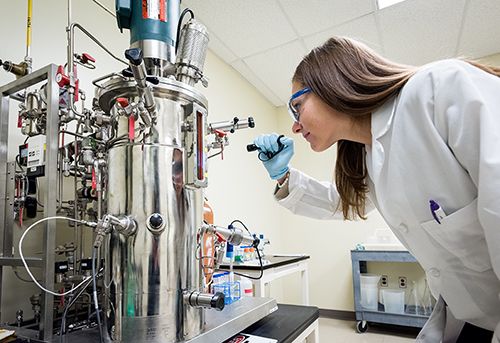The United States government announced a $ 153 million support to promote innovation in biopharmaceutical manufacturing.
The National Institute of Standards and Technology (NIST) of the Department of Commerce gave two awards for that amount to the National Institute for Innovation in the Manufacturing of Biopharmaceutical Products (NIIMBL).
Gina Raimondo, Secretary of Commerce, presented the awards at the NIIMBL annual meeting in Washington, D.C.
The NIIMBL is a public-private partnership designed to accelerate innovation in the US biopharmaceutical industry, which produces vaccines, monoclonal antibodies, gene therapies, and other medical products derived from biological sources.
In addition, NIIMBL is an institute of Manufacturing USA sponsored by the Department of Commerce.
Biopharmaceutical
On the one hand, the first prize renews NIST’s federal sponsorship of NIIMBL, providing $ 70 million over five years.
This award will allow NIIMBL to continue to drive innovation in domestic biopharmaceutical manufacturing by developing flexible, agile, and cost-effective manufacturing processes that can scale quickly and rely less on foreign supply chains.
NIST will also provide $ 83 million to NIIMBL over the three-year American Rescue Plan to support research and development to prevent, prepare for, and respond to coronavirus outbreaks.
During the Covid-19 pandemic, scientific and manufacturing innovation delivered vaccines in record time.
«The new funding will enable NIIMBL’s efforts to help transform this emergency response into an ongoing and sustainable effort to address the continuing threat of coronavirus,» the Commerce Department said in a statement.
Thus, NIIMBL will do this by developing robust and efficient processes for manufacturing vaccines and therapies for Covid-19 and other coronavirus strains that could emerge in the future.
As part of this effort, NIIMBL will work to increase shelf life and reduce the amount of refrigeration required for vaccines, boost capabilities for rapid production of antigens used in testing and screening for new variants, and develop novel technologies to detect counterfeit vaccines. , among other things.
![]()

